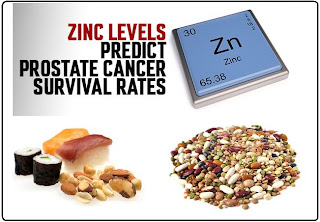Zinc and Mesothelioma
Zinc is a naturally occurring, essential mineral that plays
key roles in building DNA and RNA, cell metabolism and in regulating the immune
system. It is required for the healing of wounds, and in the senses of smelling
and tasting. Zinc also comes under other names, such as zinc gluconate, zinc
acetate, zinc carbonate, zinc sulfate, and zinc picolinate, though these forms
are slightly different in composition. Zinc is claimed to be a strong
antioxidant, which blocks free radical cells in the blood system, by its
strongest supporters. Zinc is found naturally in foods like eggs, cheese,
legumes, seafood, meats, grains and nuts.
The adult recommended daily allowance (RDA) is 11 milligrams
for men or pregnant women, 12 milligrams for breast-feeding women and 8
milligrams for the average woman. However, the FDA states that the average
person should not take in more than 40 milligrams in one day. There are plenty
of zinc supplements and products on the market, ranging from zinc tablets,
capsules, lozenges, nasal sprays, liquid zinc, and zinc gel and spray, which
accelerate healing on the skin.
This mineral has been found in metal alloys since 1400 BC.
In 1300, metallic zinc was produced in India and in 1500 it was first
recognized as an element. In the 1700s Germany built factories in order to
produce zinc, though medical research on its bodily effects did not begin until
the 1970s. Researchers have found that low levels of zinc do relate to different
diseases, including cancer, but no definite studies have been conducted to
medically prove it. It’s difficult for scientists to determine whether those
low levels of zinc were a result or cause of the cancer.
In 2004, a study was conducted for seven years on 13,000
French adults, who either took a placebo or a vitamin combination of vitamins E
& C, selenium, beta-carotene and zinc. This study did show a reduced rate
of cancer risk, but it is not sure what role zinc played. In addition, studies
show that zinc has positive effects on people with sickle cell anemia.
Overdoses of zinc are very rare, but people who take 300 – 450 milligrams per
day show serious complications, such as a slight risk of developing prostate
cancer, kidney failure, vomiting, headaches and extreme fatigue. Patients are
cautioned to always consult with a doctor, especially when pregnant, before
taking any supplements or sprays.
Reference:

